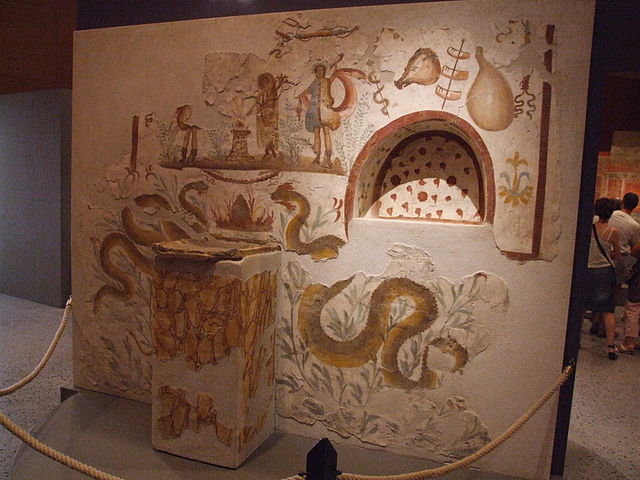Related to some of our recent discussions, Scientific American has an interesting article on the spread of farming during the neolithic. From the article: Roughly 9,000 years ago farmers from the Middle East headed toward Europe, seeking new land to cultivate. The farmers traveled either along the Mediterranean coast or the Danube River, encountering hunter-gatherers who lived … Continue reading Invasion of the farmers
Tag: Ancient History
How polytheism worked
Related to our discussion on religion, I found this series of posts from Bret Devereaux on Practical Polytheism pretty interesting. It matches descriptions I've read from writers like Bart Ehrman, on how ancient polytheism worked. In summary, at the center of polytheism was ritual, ritual to appease the gods so that the harvest would come … Continue reading How polytheism worked
The antecedents of western philosophy
Peter Flegel has an interesting article in Philosophy Now looking at possible connections between ancient Greek philosophy and conceptions explored in the Egyptian New Kingdom period. Ideas like the four elements and the theory of forms seem to have pretty clear antecedents in Egyptian thought. (There's also a brief suggestion that Akhenaten, known for a … Continue reading The antecedents of western philosophy
Big societies came before big gods
Some years ago I reviewed a book by Ara Norenzayan called Big Gods: How Religion Transformed Cooperation and Conflict. Norenzayan's thesis was that it was a belief in big gods, specifically cosmic gods that cared about human morality, that enabled the creation of large scale human societies. In small societies, reputation serves as an effective … Continue reading Big societies came before big gods
The soul of the Roman Empire
According to tradition, in the early days of ancient Rome, King Numa Pompilius established a religious institution: the Vestal Virgins. The Vestal Virgins were chaste priestesses of Vesta, the goddess of home and hearth. Their duty was to maintain the sacred flame in the temple of Vesta. The Romans believed that as long as the … Continue reading The soul of the Roman Empire
Why the Exodus, as commonly understood, probably never happened
At the urging of one of my relatives, I watched Ridley Scott's 'Exodus: Gods and Kings'. This relative, knowing my skeptical nature, thought I might enjoy Scott's naturalistic (mostly) take on the events in the story. I'm sorry to say that I didn't really enjoy the movie, which is unusual for me because I usually do enjoy … Continue reading Why the Exodus, as commonly understood, probably never happened
Religion, the Axial Age, and theoretic culture
I recently read the late Robert Bellah's 'Religion in Human Evolution: From the Paleolithic to the Axial Age.' Although the title of the book seems to narrow it to just religion, in ancient societies, religion was just about everything, so the book ended up being about the development of cultures, which isn't too surprising given … Continue reading Religion, the Axial Age, and theoretic culture
Origins of Hierarchy: How Egyptian Pharaohs Rose to Power
Stephanie Pappas has an interesting post at LiveScience: Origins of Hierarchy: How Egyptian Pharaohs Rose to Power. The rulers of ancient Egypt lived in glorious opulence, decorating themselves with gold and perfumes and taking their treasures with them to the grave. But how could such a hierarchical, despotic system arise from egalitarian hunter-gatherer societies? The … Continue reading Origins of Hierarchy: How Egyptian Pharaohs Rose to Power
On theories of why civilizations collapse and our own times
After my post on the Bronze Age collapse and resulting discussion, I looked at other material about the collapse of civilizations, but after doing that, realized that I have some thoughts about what might be necessary for developing a theory about why collapses happen, what areas of expertise you need to have a chance at formulating … Continue reading On theories of why civilizations collapse and our own times
The collapse of the Bronze Age civilizations
A while back I did a short post on the collapse of civilizations, noting that history pretty much shows that all civilizations, sooner or later, end. (I also expressed skepticism that ours is necessarily anywhere near this point.) The quintessential example of a civilization collapse is the fall of the Roman Empire. But it is by … Continue reading The collapse of the Bronze Age civilizations

